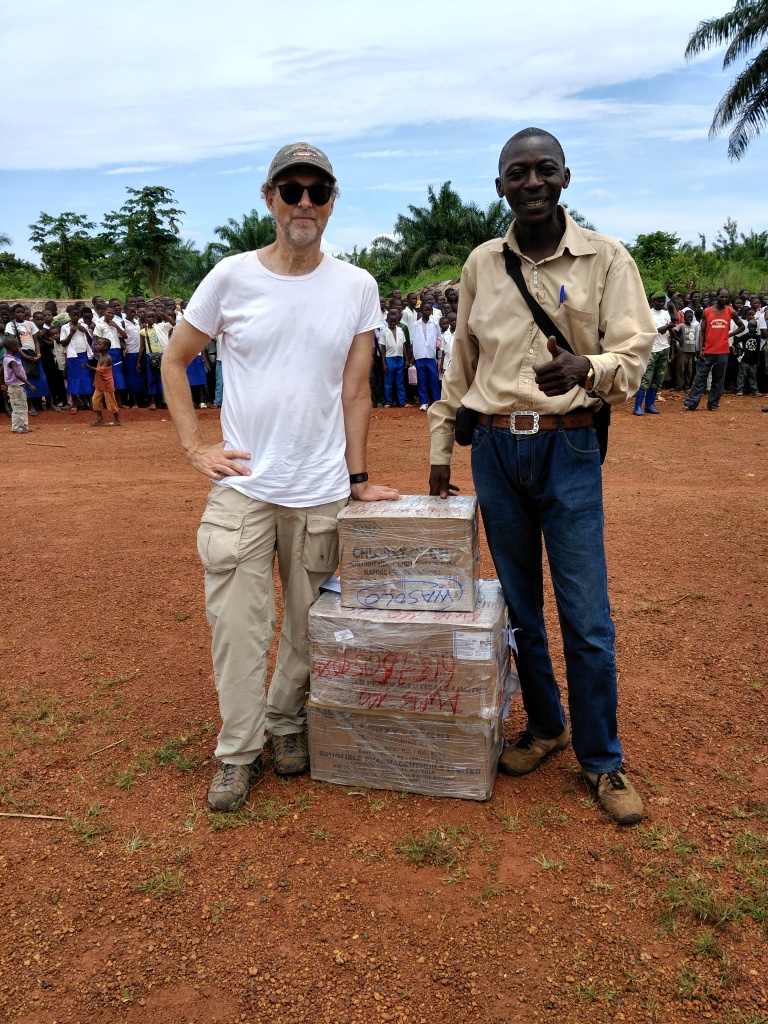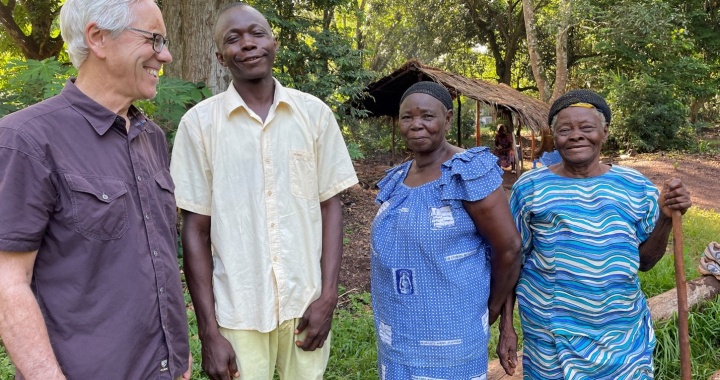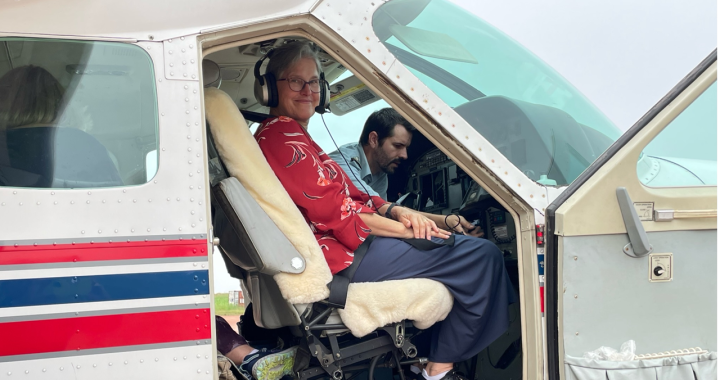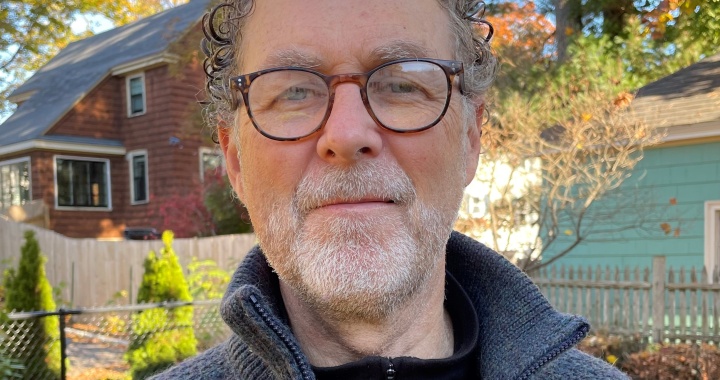by Dr. Eric Gunnoe, Medical Ambassador
It was Thursday afternoon and we had finished the hardest days. We were now testing the clinical skills of the 18 nurses who had just taken our routine newborn care course called Essential Care for Every Baby. The day was hot and very humid, as they usually are on the Equator, the kind of day that displaced Southerners like me long for. However, as I stood there, I started crying. And I wasn’t entirely sure why. In front of me stood Alphonse, a gifted young man. I’d seen his friend and fellow student, Sister Mimi, stroll confidently past me during our hospital tour, sit down in front of a screaming Congolese child, and quickly slide an IV into his hand. That’s not easy to do. This takes skill and composure that few have. She looked over to see if we had been watching, saw me staring, and then pumped her fist in the air. I was happy for her. I want the world to know that doing something like that so handily rivals the three-point shooting prowess of Steph Curry. Alphonse and Mimi had game and they were pleased to finally catch the world watching them. But were any of these a reason for me to cry?
As afternoon faded into evening and the riotous Weaver birds outside in the courtyard settled down for the obligatory 12-hour tropical night, I finally figured it out. I was crying for those hopeful young people. These kids were getting ripped off. We three Americans were certainly impressed, but the rest of the world was, I don’t know, distracted? As Alphonse proudly recited the importance of placing a newborn skin-to-skin with her mother, lest she become hypothermic, I had a sneaking suspicion that folks back home weren’t paying any attention. This made me sad for Alphonse and his friends.
I also knew that things were becoming increasingly worse. After years of poverty and war, people are seeking refuge someplace better, and much of the world is not happy about it. The world impedes their movement with walls and angry rhetoric, smugglers prey upon them and extort them, and the U.S. government deters them by separating them from their children. If the world can do this, then does it really have anything to offer Alphonse?
I had come to Wasolo, Democratic Republic of Congo (DRC) as a volunteer with the Paul Carlson Partnership, which supports the healthcare and economic infrastructure of the Ubangi Provinces (both North and South) of the DRC. We had just completed an intense training program in both newborn resuscitation and routine newborn care. Given that the Congo shares the distinction with Somalia of being the most dangerous place to be born in the world, courses in newborn resuscitation and routine care make a lot of sense. The centerpiece of our course during this visit was an antiseptic gel called chlorhexidine. Studies in Nepal and Bangladesh have demonstrated improved under 7-day survival for newborns who received a daily application of this gel on their umbilical cords. The effect was so strong that chlorhexidine needed only to be applied on 165 babies in order to save the life of one of them. The year’s supply of 1000 tubes of chlorhexidine gel that I’d been working to bring to the Congo for months could very well save 5-6 babies’ lives.
However, our problem was that the chlorhexidine gel had not made it past Congolese customs. After months of attempting to contact a silent Congolese embassy in Washington, I had simply run out of time. By the time the office found me a live contact, our trip was upon us and I simply ran out of time to obtain prior approval for importing the chlorhexidine into the country. This is why the chlorhexidine was still sitting at the airport. I should have started a week earlier!
However, my friend, Pastor Téodor Danu of Kinshasa, was on the case. After we left to fly up-country, he continued to travel to the airport daily, making his case for releasing the chlorhexidine. By Tuesday, he had succeeded. He took the three boxes to the Mission Aviation Fellowship (MAF) hangar across town and arranged to have the chlorhexidine come up on the plane that would bring us back down-country a week later. Later, when I saw him in Kinshasa, I thanked him and proclaimed his name “Téodor, l’ami du nouveau-né” or “Téodor, the friend of the newborn”. I knew this would make him cry, and it did.
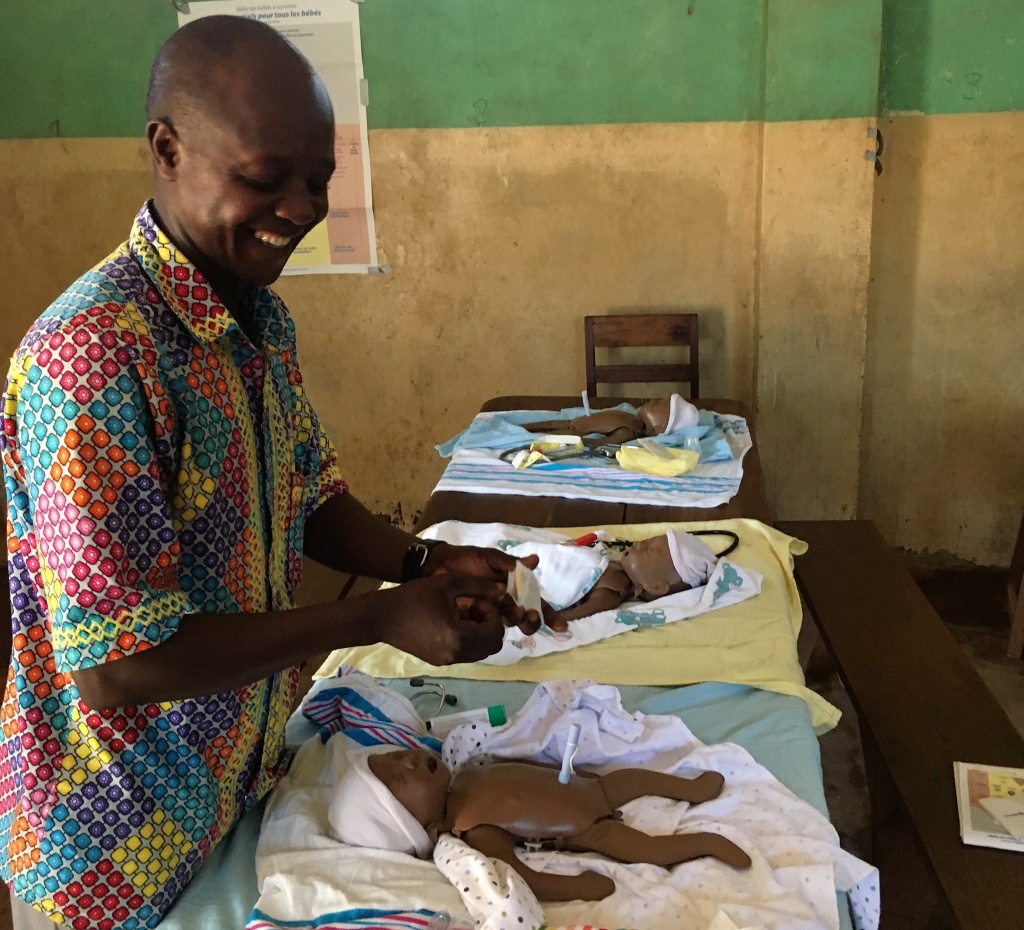
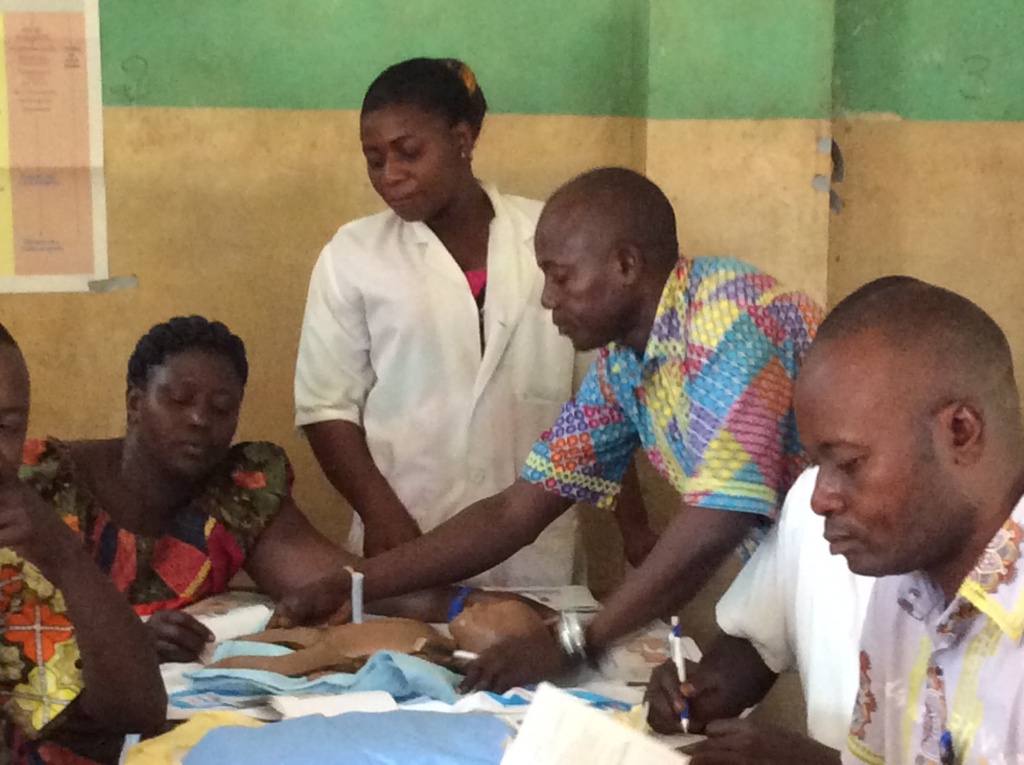
Up-country in Wasolo was another matter. Without Internet or cell phone access, we three Americans had no way of knowing any of what had transpired in Kinshasa. We simply sat on the edge of that tarmac hoping that the MAF flight would arrive on time. When the plane buzzed the airstrip, it was cause of celebration. A shepherd quickly chased his goats off the grassy strip, the plane circled, and landed. The ruckus attracted the curious and a crowd of 5,000-10,000 people gathered, most of whom were kids. The pilots first began to unload 20 mattresses, which had been donated to the Wasolo Hospital by a church in the U.S. Mattresses are a big deal in Congolese hospitals (they were all stolen by soldiers and militia men during the two civil wars in the 1990s and early 2000s) and replacing them has been no easy matter. While everyone but me and my friend, Dr. Eddy Yankagala, was preoccupied with the mattresses, Eddy and I feverishly set about looking for boxes of chlorhexidine. We found them tucked amid the mattresses, their cellophane giving them away. Eddy and I peered through the wrap and cheered when we saw the chlorhexidine labels. After two years of planning and praying for this project, I sat there and cried yet again. At the last possible moment, it had arrived. With the chlorhexidine in our possession, Eddy and I had a final discussion about the design of a study that would prove or disprove the efficacy of this drug in this part of the world. After that, we climbed into the plane to start our journey home and the Congolese took their mattresses and chlorhexidine and made their way back down that muddy road to Wasolo.
The dramatic arrival of the chlorhexidine certainly sweetened my long trip home. Unless God intervenes otherwise, I’ll make it home Sunday night. Dawn will arrive on Monday morning and those angry roosters in Wasolo will surely have a lot to say about it. Monday morning, I think I’ll stroll down to the gym and start getting back into shape. The newborns in Wasolo will be dry and toasty up against their mothers’ bosoms. Nothing much will have changed anywhere unless you consider that those babies’ umbilical cords and the skin around them will be glistening with chlorhexidine gel.
I like to think that the Wasolo Lycée (high school) Class of 2036 will be a little bit bigger because of all these chlorhexidine babies, that this class will have some stars in it. Happily, there is not a monopoly on talent, which is something that I often thank God for. If God can bring Randy Moss out of my forlorn little West Virginia hometown, then what might He have in store for Wasolo? I’ll bet the kids in that class will have some world-class game in them. In fact, I’m hoping that those guys will get themselves both a Sister Mimi and a Steph Curry out of this little deal.
Alphonse and Mimi, I want you, there in Wasolo, to teach everyone else how to take good care of those babies. Your time will come and – God willing – the world will welcome you because of your decency, humility, and optimism. It’ll also appreciate your fine medical skills.
